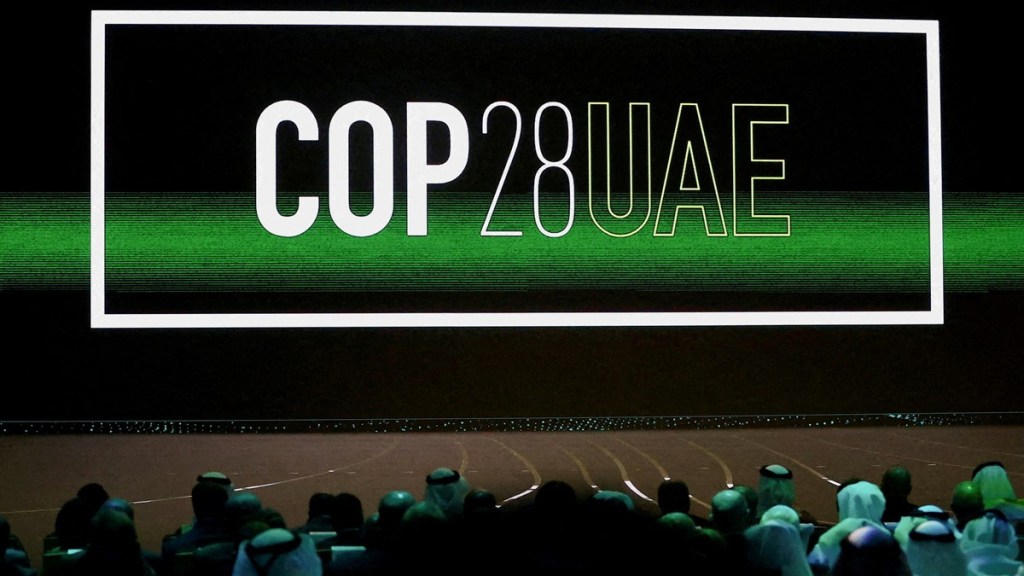By Deepak Gupta & K Krishan
The role of developed nations in the annual Conference of Parties (COP) meetings, in recent years, has shown a distressing pattern—undermining the concept of their historical responsibility, downplaying their obligations while failing miserably to meet even their inadequate commitments related to GHG emissions cuts, climate finance and technology transfer, and trying to shift the burden of mitigation to larger developing nations. The current global scenario does not give confidence for a radical shift in their stance. Hence, we approach COP 28 in Dubai with sense of deja vu and fears of impasse.
Their nationally determined contributions (NDCs) were inadequate to limit temperature to 1.5°C to begin with, but multiple studies have concluded that even these will not be met, with shortfalls in GHG emissions reductions anticipated to be greater than 20% for the US and greater than 10% for the EU and UK. This is a dismal scenario. A brief analysis of the causes is thus in order.
Over-reliance on market economics
The US Inflation Reduction Act, passed last year, aimed to swiftly decarbonise the US economy by providing billions of dollars in new or expanded tax credits for low-emissions technologies. It aimed to mobilise huge private sector investment in multiple clean energy projects, and boosting private sector confidence to pursue decarbonisation projects, but many energy projects are now on hold or abandoned. Investors attribute this to high interest rates, supply chain constraints, ambiguity in tax rules, and the unpredictable nature of regulatory and government processes. Such delays and cancellations despite IRA subsidies clearly indicate that incentives work only with an enabling ecosystem, having cogent policies, clear-cut legislation, and efficient regulatory framework. This is true everywhere.
Moonshot approach
The moonshot approach refers to announcing unrealistic targets, presuming scientific advancements, substantiating with complex modelling of decarbonisation pathways, and obfuscating the ground realities of the short to medium term, with a detrimental impact on investor confidence and achievement of NDCs . To illustrate, the US set a target that 50% of all new vehicle sales by 2030 must be electric. But, with sales from the last quarter being less than 8%, GM and Ford have put on hold significant investments in EV production facilities. In September 2023, the UK backtracked on key climate policies, such as the 2030 phase-out of new petrol/ diesel cars and the 2035 phase-out of gas boilers, undermining investor confidence.
Double standards and backtracking
At Glasgow, India was criticised for insisting on “phasing down” rather than “phasing out” of coal. Just a few months later, the Russia-Ukraine war disrupted global energy markets, leading to a volte face by the West. In 2022, the US reached record highs in oil and gas production as well as exports. It plans to increase its LNG export capacity by more than 40% by 2026. Likewise, the EU is making significant investments in LNG terminals and fossil gas pipelines and the UK is providing support for oil and gas extraction in the North Sea. These rising fossil fuel investments risk carbon lock-in and act as a dampener for a clean energy transition.
“Believe in the science”
This is postulated by developed nations in climate conferences while pushing for Net Zero targets. In the process, the focus shifts to long-term deep decarbonisation technologies, neglecting short- to medium-term initiatives required to meet NDCs. For instance, the UK offers support to green hydrogen and CCS projects but does not extend such support to industrial electrification and has insufficient funding for households’ energy efficiency improvements. Consequently, its Climate Change Committee found that the UK has credible policies for only 20% of the emissions reductions required to meet its Sixth Carbon Budget, which extends beyond 2030. NDCs, and even net zero, require calibrated and coordinated progress on multiple areas, step by step, year on year, focusing on technologies that are field-proven or nearing commercialisation.
Ignoring the critical role of community
Developed nations direct their development finance on capacity-building within developing economies but ignore the need for behavioural and societal change within their own nations. For NDC fulfilment, public transport has to become a mainstream option, buildings have to be energy & resource efficient, sustainable farming adopted—all of which require a community buy-in and change in consumption patterns. Will the energy emission-intensive consumptive life style change?
Ignoring fundamentals
Climate action needs global effort. This has several aspects—most significantly, climate finance, technology transfer, and supply chains. Where is the $100 billion pledged annually by 2020, though billions have been spent on arms? The IMF estimates fossil fuel subsidies were $7 trillion globally in 2022. The only tangible outcome of COP27 was that the Loss and Damage Fund remains under discussion. The G20 in September 2023 targeted tripling of renewable energy capacity globally, but China and the developed countries are dominating and constraining the supply chain for this.
Technology transfer is more about technical assistance and private sector initiatives, rather than multilateral programs of joint collaborative research. Apart from ethical issues of reneging on commitments and persisting with inequities, it goes against business logic, as the benefits of collaboration between developed and developing nations are well-established, with the latter providing the volumes which drive down the costs of transition. There is another disturbing trend, which some activists call “the new green imperialism”. Developed nations are seeking to use renewable energy resources of developing countries to manufacture green hydrogen and import the same to decarbonise their ‘hard to abate’ sectors, thereby creating new inequities in energy access.
Climate change is correlated to global carbon stock, hence, an integrated global view of decarbonisation and action has to be taken. The onus is on the developed nations, although there are many lessons for us too. We end with this quote by Paul Polman, “Working together on solving something requires a high level of humility and a high level of self-awareness”.
(The authors Gupta is a former secretary, MNRE, and former chairperson, UPSC, and Krishan is chairman, CVC Biorefineries Pvt Ltd. Views are Personal)

